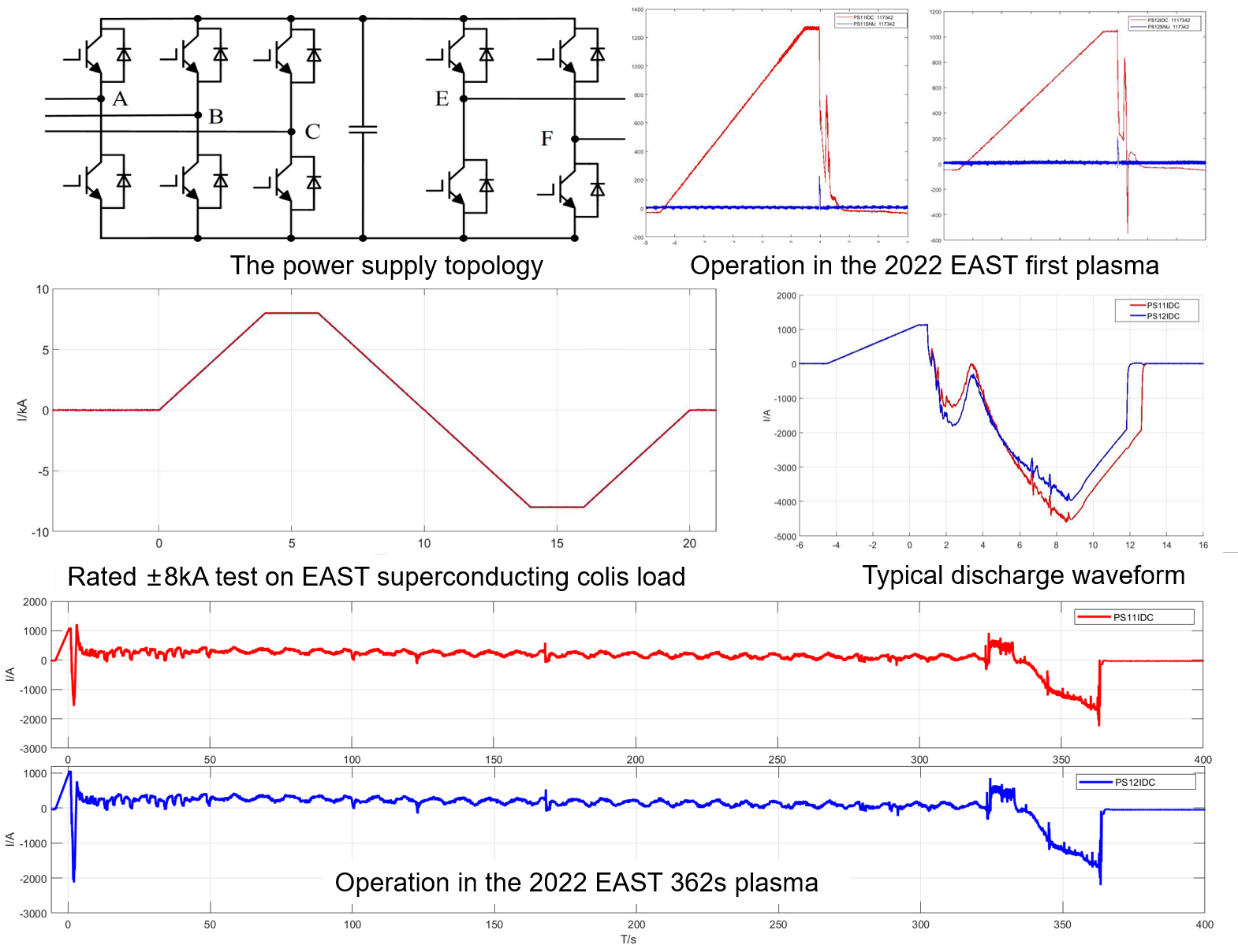
A research team led by Prof. HUANG Liansheng from the Hefei Institutes of Physical Science of the Chinese Academy of Sciences has developed a new generation of poloidal field coil power supply (rated current ± 15kA).
Based on fully controlled devices and pulse power modulation technology, it has been applied to the upgrade of the Experimental Advanced Superconducting Tokamak (EAST) poloidal field PS11/PS12 power supply, the first power supply for poloidal field coil in tokamak devices adopting fully controlled power electronic devices.
The upgraded PS11/PS12 magnet power supply entered EAST operation in the autumn of 2022 and operated stably for 51 days and 3,402 shots. Its performance exceeded the design requirements.
In the experiment, the fully controlled pulse power modulation technology replaced the thyristor phase-controlled rectifier in the high-power fusion magnet power converter. It has many advantages including high efficiency, high power factor, controllable harmonics, fast response, high reliability and low embedded cost.
"We have been working on this project for six years," said Prof. HUANG, "four years on research and two years on key technologies."
The development and operation of the new generation of power supplies will not only promote the technical application of fully-controlled power conversion technology in the field of high current, but also provide a promising solution for the future fusion facilities, according to the team.

The research team has been working on this project for six years. (Image by CHEN Xiaojiao)

Topology and typical waveform of the new generation of poloidal field coil power supply. (Image by ZHU Jinwen)

86-10-68597521 (day)
86-10-68597289 (night)

52 Sanlihe Rd., Xicheng District,
Beijing, China (100864)

